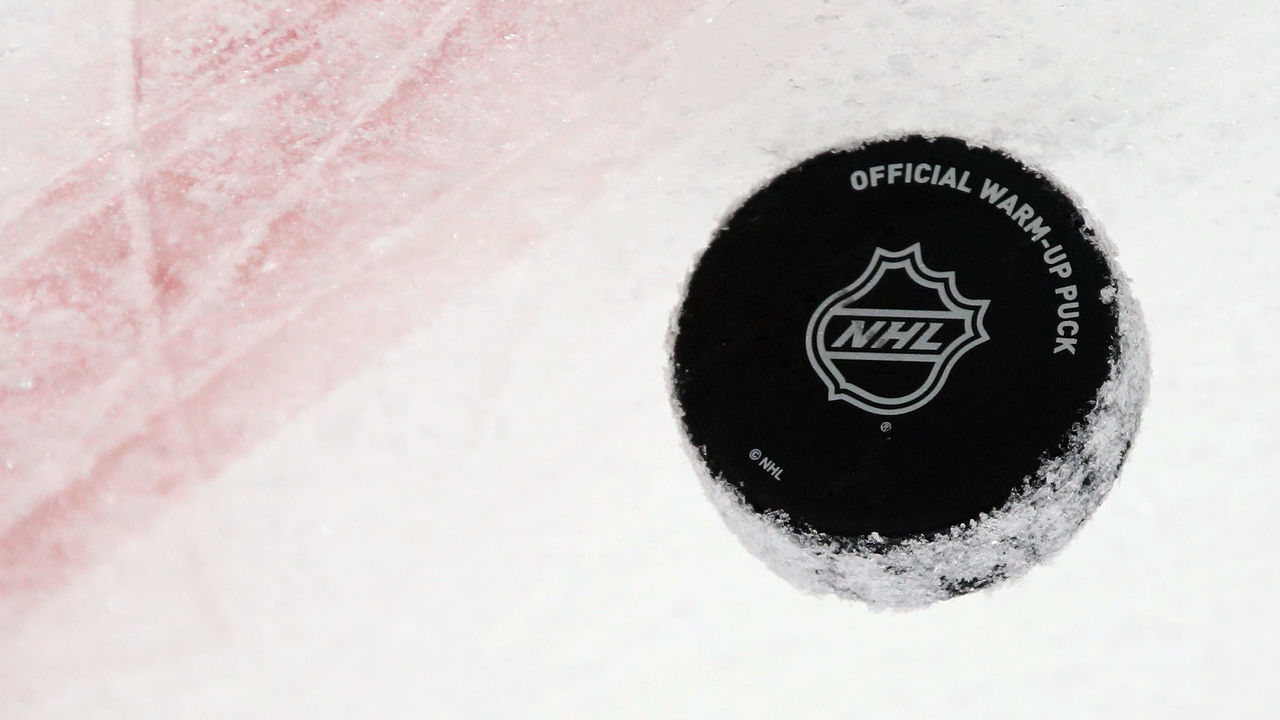Why the NHL's point system is broken and how it can be fixed
Florida Panthers forward Noel Acciari tipped home the game-winning goal in the final seconds against the Minnesota Wild on Monday night. It was just the third time this season a tie-breaking marker was scored with under 30 seconds left in regulation, according to NHL.com's Tom Gulitti.
That statistic may seem hard to believe, but if you're familiar with the league's flawed point system, it's not surprising at all.
Any form of victory - whether it's a regulation, overtime, or shootout win - currently results in two points. Teams also get a point for losing in overtime or a shootout. After fewer games played, regulation wins and then regulation plus overtime wins (ROW) are used as tiebreakers.
This doesn't give teams enough incentive to play aggressively late in regulation with the game tied. Teams that feel overmatched in three-on-three overtime can try to play keep-away and take the game to a shootout, where there is far more chance involved.
The Anaheim Ducks, who sit second-last in the Western Conference, are 4-1 in shootouts this season. The Boston Bruins, who are second in the Eastern Conference, have an 0-7 record in shootouts. There's no correlation between being a good hockey club and winning shootouts, yet shootout wins still result in two points.
A suggestion that many people have backed, including TSN's Pierre LeBrun, involves awarding three points for a regulation win, two points for an OT or shootout win, and one point for an OT or shootout loss. This would help, but it doesn't solve the problem.

A point system that gives three points for a regulation win, two points for an overtime win, one point for a shootout win, and zero points for any type of loss would have a greater effect.
Eliminating the loser point is long overdue. The NHL is the only major professional sports league that awards one. But giving teams an incentive to win as early in the game as possible would provide crazier finishes in regulation, more exciting overtimes, and, most importantly, fewer shootouts.
While extending overtime - even by just two minutes, as the ECHL did this season - would also lead to fewer shootouts, it may be difficult to get the players' association to sign off on it.
Under the proposed system, going all the way to a shootout and losing would be deflating - but it wouldn't happen as often, and the losing team would have the comfort of knowing its opponent only earned one point.
The standings tiebreaker for the new point system would follow a similar format:
- Regulation wins
- OT wins
- Goal differential
- Strength of schedule
Here's how the league standings would look as of Monday, ranked in order using the new system:
Atlantic Division
| Team | Current Pts | New Pts | Change |
|---|---|---|---|
| Bruins | 68 | 81 | -- |
| Lightning | 62 | 80 | -- |
| Panthers | 57 | 70 | -- |
| Maple Leafs | 57 | 69 | -- |
| Sabres | 51 | 60 | -- |
| Canadiens | 51 | 56 | -- |
| Senators | 42 | 47 | -- |
| Red Wings | 28 | 33 | -- |
Metropolitan Division
| Team | Current Pts | New Pts | Change |
|---|---|---|---|
| Capitals | 71 | 87 | -- |
| Penguins | 67 | 80 | -- |
| Hurricanes | 59 | 73 | ▲ |
| Blue Jackets | 60 | 72 | ▲ |
| Islanders | 61 | 71 | ▼ |
| Rangers | 50 | 66 | ▲ |
| Flyers | 58 | 64 | ▼ |
| Devils | 41 | 45 | -- |
Central Division
| Team | Current Pts | New Pts | Change |
|---|---|---|---|
| Blues | 68 | 84 | -- |
| Avalanche | 60 | 78 | -- |
| Stars | 58 | 72 | -- |
| Jets | 54 | 65 | -- |
| Blackhawks | 54 | 64 | -- |
| Wild | 50 | 63 | ▲ |
| Predators | 51 | 62 | ▼ |
Pacific Division
| Team | Current Pts | New Pts | Change |
|---|---|---|---|
| Oilers | 57 | 72 | ▲ |
| Canucks | 58 | 72 | ▼ |
| Golden Knights | 57 | 66 | ▲ |
| Coyotes | 57 | 66 | ▲ |
| Flames | 57 | 64 | ▼ |
| Sharks | 46 | 55 | -- |
| Kings | 41 | 49 | ▲ |
| Ducks | 43 | 47 | ▼ |
Of course, this doesn't tell the whole story, as the outcome of these games would be different if the incentives for winning were different. The changes in the standings may be subtle, but they reward the best teams.
It may appear that this point system would ruin some of the parity that the league takes pride in. However, remember that a team on a five-game regulation winning streak, for example, would earn 15 points. Unlike the current system, teams wouldn't be able to accrue points during losing streaks. This would produce much more movement in the standings throughout the season.
This proposal would create a better on-ice product and do a better job of putting the league's best 16 teams in the postseason.
Your move, NHL.
HEADLINES
- McKenna has felony assault charge dropped, still faces other offenses
- Report: Maple Leafs seeking 1st-round pick for McMann
- Tkachuk, Hagel fight again as part of Battle of Florida brawl
- Jarvis replacing injured Point on Canadian Olympic team
- Panarin trade grades: Kings address pressing need, Rangers get antsy